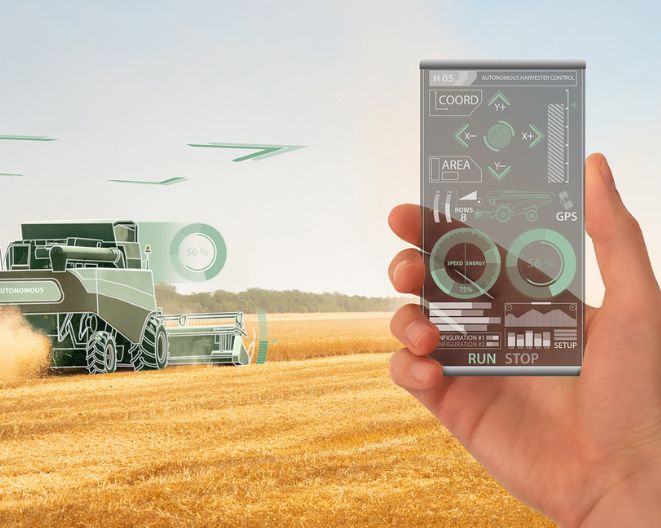The world’s population is projected to reach nearly 10 billion by 2050, and with that comes an increasing need for sustainable and efficient food production. Agriculture has been one of the most traditional sectors, but with the advent of new technologies, it’s undergoing a significant transformation. In this post, we will explore the impact of technology on agrarian transformation, and how it’s revolutionizing the way we produce food.
Precision Agriculture
Precision agriculture is an approach to farming that uses technology to increase efficiency and productivity. This includes the use of sensors, drones, and satellite imagery to gather data on soil conditions, weather patterns, and crop growth. This data is then used to optimize crop management, reduce waste, and increase yields. Precision agriculture can help farmers make more informed decisions and improve the sustainability of their farming operations.
Internet of Things (IoT)
The Internet of Things (IoT) is a network of connected devices that can communicate with each other and with the internet. In agriculture, IoT technology is being used to monitor and control various aspects of farming operations, such as irrigation, temperature, and soil moisture. This can help farmers optimize crop management, reduce water usage, and improve crop yields. Additionally, IoT-enabled devices can also provide valuable data that can be used to improve crop yields and quality.
Artificial Intelligence (AI)
Artificial Intelligence (AI) is being increasingly used in agriculture to analyze large amounts of data and make predictions about crop yields, weather patterns, and soil conditions. AI-powered tools can help farmers optimize crop management, predict crop yields, and improve efficiency. Additionally, AI-powered robots can be used to perform tasks such as planting, harvesting, and soil analysis, which can increase productivity and reduce labor costs.
Blockchain Technology
Blockchain technology is a secure, decentralized, and transparent way of storing and sharing data. In agriculture, it is being used to track the origin and movement of food products, providing transparency in the supply chain and enabling farmers and suppliers to access new markets. Additionally, blockchain technology can also be used to track and verify sustainability certifications, which can help farmers and suppliers access premium prices for their products.
Genetically Modified Crops
Genetically modified crops are another area where technology is having a significant impact on agriculture. This includes crops that are resistant to pests, diseases, and environmental stress, which can help to increase yields and reduce the need for pesticides and other chemicals. Additionally, genetically modified crops can also be developed to have improved nutritional value, providing increased micronutrients and vitamins for better human consumption. However, it’s also important to consider the potential negative impacts of genetically modified crops, such as on biodiversity and the potential for cross-contamination with non-GMO crops.
Climate-smart Agriculture
Climate change is having a significant impact on agriculture, and technology is being used to help farmers adapt to these changes. This includes using weather forecasting and climate modeling to predict future conditions and make more informed decisions about planting and harvesting. Additionally, technologies such as precision irrigation and water management systems can help farmers conserve water and reduce the impact of drought.
Conclusion
Technology is revolutionizing the way we produce food and it’s having a significant impact on agrarian transformation. There are some of the most promising technologies that are being used to increase efficiency, productivity, and sustainability in agriculture. These technologies can help farmers make more informed decisions, optimize crop management, and increase yields, ultimately helping to ensure food security for the future.





